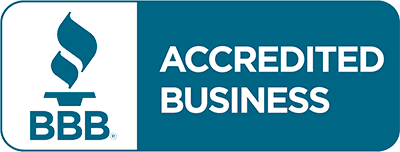Identity theft is nothing new, but it’s become a more compelling concern in the digital age. As hackers become savvier, they’re discovering that business identity theft can be far more lucrative than taking a consumer’s personal information. For example, a theft at JPMorgan Chase led not only to the theft of 76 million households, but 7 million small businesses as well.
A business theft occurs when a criminal steals information about a business, using it to get cash, lines of credit, or loans. Unfortunately, many businesses don’t realize that they’ve been victims of identity theft until they incur significant losses. Additionally, they may lose assets that a criminal pledged in order to obtain the line of credit.
For example, one small business owner discovered he was the victim of identity theft when he received a phone call from a utility company stating that his electric bill for one of his office buildings had not been paid. The owner never received the electric bill because the building had been sold without his knowledge. An identity thief had gained access to his corporate records. The criminal then altered the minutes to the business’s board meeting, making himself CEO. Then using the documents to verify his authority, he sold the building and pocketed the proceeds.
The consequences of business identity theft can be more devastating than consumer ID theft for these reasons:
- Banks are not compelled by the law to cover losses from any business credit accounts or payroll systems.
- Business identity theft not only affects the owner, but also the employees and customers, which can be very damaging to a business’s reputation.
The FBI reports that small businesses lose around $8 billion annually from identity. Criminals exploit smaller businesses’ lack of appropriate security systems and make away with the cash or assets – to the detriment of all the hardworking people involved.
In another case, a small law firm in Ontario became a victim of business identity theft when fraudsters stole their phone system password. These criminals made more than $200,000 in long distance phone calls to Africa before the telecom provider contacted the firm regarding the suspicious charges. The law firm was able to settle with the phone company to reduce the charges, but it was an expensive lesson. The attorneys have since implemented tighter security measures for their phone system and passwords.
Businesses can protect themselves from fraud by developing secure, hard-to-guess passwords and taking steps to secure their business information. In the first example, the business owner’s lack of a secure document storage system allowed thieves to access important company data and subsequently sell his building.
If you’re looking for a secure way to store your sensitive data and protect yourself from business identity theft, contact Armstrong Archives for more information.

Posted By: Sherri Taylor – President/Managing Partner
Sherri Taylor is the Managing Partner and President of Armstrong Archives, one of the largest independent records and information management companies in the Dallas/Ft Worth area.












